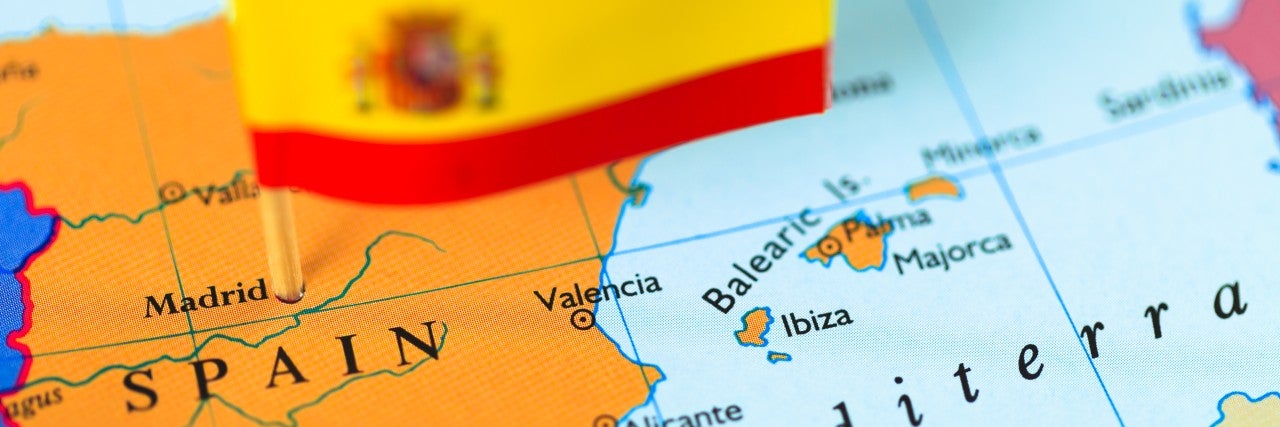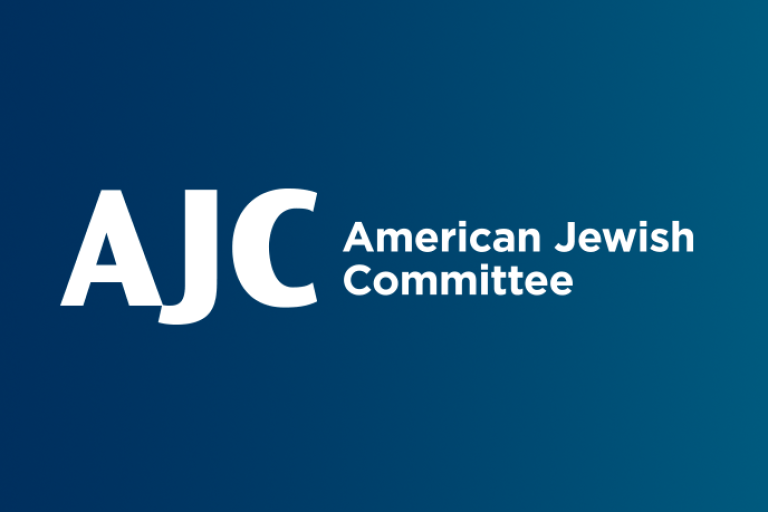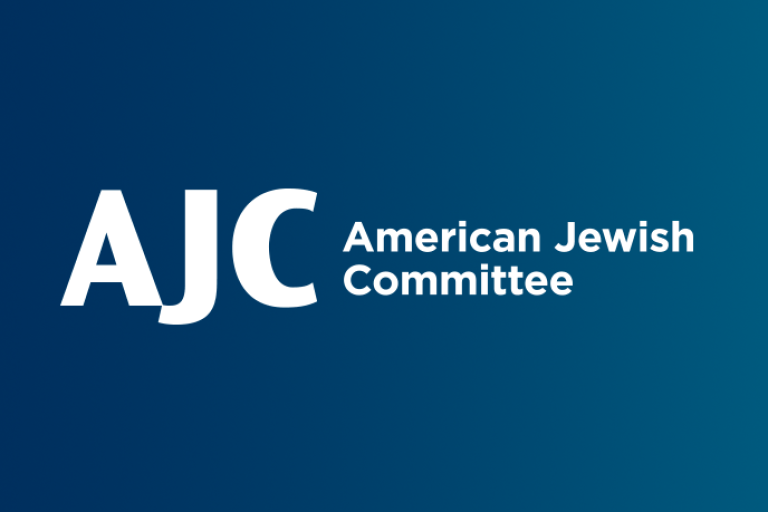May 4, 2023
In recent years, there are few countries in the world that have invested more resources in celebrating the Jewish fiber of its national identity than Spain. Of all the European nations, it has one of the lowest rates of antisemitic incidents. But then there’s Barcelona.
As Jewish communities around the world commemorated Yom HaShoah, Israel’s Holocaust Memorial Day, the façade of Barcelona’s Maimonides Synagogue was vandalized with graffiti proclaiming the antisemitic slogan: “Free Palestine from the river to the sea.” A week later, on Israel’s Remembrance and Independence Days, more anti-Israel graffiti was spray painted outside the entrance to Barcelona’s Chabad-Lubavitch Synagogue.
While antisemitism has been an issue in Spain for centuries, great strides have been made in recent years to reconcile Spain’s history with efforts to protect the Jewish community. Here are five things to know about the history of antisemitism in Spain and the well-being of its Jewish citizens today.
1) Jews in medieval Spain
After Muslims ousted the Visigoths from the Iberian Peninsula, the era of Islamic rule that followed from 589 and 976 CE was largely prosperous for Jews. That ended with the death of Muslim ruler Al-Hakam II, the dissolution of his caliphate, and a series of subsequent invasions by Christian states to retake the region, known as the “reconquista.”
During the reign of Henry III of Castile and Leon (1390–1406), Jews in medieval Spain often had to choose between baptism and death. In 1478, Pope Sixtus IV authorized King Ferdinand and Queen Isabella of Spain to conduct the Spanish Inquisition, which persecuted Jews and others who were not Catholic.
On March 31, 1492, Ferdinand and Isabella issued the Alhambra Decree, also known as the Edict of Expulsion, which gave Jews three months to leave their homeland behind or convert to Catholicism. Those who stayed, including those who converted but were suspected of practicing their faith in secret, ran the risk of being tortured and killed.
Once one of the largest Jewish communities in Europe, Spain now has 40,000 Jews out of a population of nearly 46 million.
2) Today’s Spanish government’s reconciliation
From 2015 to 2019, Spain offered reparation for the Inquisition. Led by the King of Spain, His Majesty King Felipe VI, the government granted citizenship to applicants of Sephardic Jewish descent who could prove a Jewish ancestor had been expelled, demonstrate their ability to speak Spanish, and pass a citizenship test.
But even prior to that, in 2007, the Spanish government launched Centro Sefarad-Israel in Madrid to shed light on Jewish history and culture, the Holocaust, and Israel. The center presents Sephardi Jewish culture as integral to Spanish culture.
Separately, in 2018, Spain’s Ministry of Education, Culture and Sport and the Federation of Jewish Communities of Spain (FJCE), a longtime partner of AJC, signed an agreement to provide training for teachers on the Holocaust, the artistic and cultural heritage of Jews in Spain, the importance of the land of Israel for the Jewish people, the Middle East conflict, and the fight against antisemitism and other forms of intolerance.
The Spanish government was also one of the first European Union countries to approve a national plan incorporating the European Strategy on Combating Antisemitism and Fostering Jewish Life, a multi-faceted plan that incorporated many recommendations from AJC. Spain’s plan aims to combat all forms of antisemitism or incitement against Jewish communities, including on the Internet; aims to create conditions for Jews to worship and maintain their traditions freely; and promotes research, education, and Holocaust remembrance.
Now, rather than expelling its Jewish citizens, Spain has become a site of refuge for many Jews escaping persecution elsewhere in Latin America or in Ukraine.
To recognize Spain’s efforts in writing a new chapter in relations with the Jewish world and Israel and its bridge-building efforts among Latinos and Jews in Spain, the U.S., and throughout the Americas, AJC bestowed upon King Felipe VI its Gesher Award in July 2022.
3) Spain’s adoption of the IHRA Working Definition of Antisemitism
As violent attacks against Jews were frequently, and falsely dismissed as political protests amid the Middle East conflict, the International Holocaust Remembrance Alliance (IHRA) and its 31 member states, including Spain, developed an international consensus around a Working Definition of Antisemitism. In 2020, Spain’s parliament became the 23rd national government to adopt the non-legally binding definition as a tool to help officials recognize certain aggressions as antisemitism.
The definition offers 11 examples, seven referring to Israel that, depending on the context, could become antisemitic. Spain is one of several countries that have embraced the definition but isn’t afraid to critique Israel just as it would other international partners.
4) Barcelona’s outlier status
In February, Barcelona Mayor Ada Colau announced that Spain’s second-largest city would sever ties with its twin city Tel Aviv. The move answered the demands of anti-Israel activists who in January had petitioned the city council to condemn Israel.
Since the council’s vote would have taken place on International Holocaust Remembrance Day, it was postponed. As a result, Colau issued a decree. In a letter addressed to Israel’s Prime Minister Benjamin Netanyahu, Colau said the city was suspending relations with the State of Israel and its official institutions.
🚨 In suspending Barcelona's sister city ties with Tel Aviv, Mayor @AdaColau has chosen division over bridge building.
— American Jewish Committee (@AJCGlobal) February 8, 2023
We strongly condemn this counterproductive move and stand in solidarity with 🇮🇱 and our 🇪🇸 partners @fcjecom. https://t.co/oe0dTzwboM
Colau found little support for her radical move. Embarrassed by the decree that it had no power to overturn, the Barcelona City Council symbolically voted it down. Spain’s Foreign Minister Jose Manuel Albares also traveled to Barcelona and spoke forcefully against Colau’s attempts to sever ties to Tel Aviv.
Meanwhile, FC Barcelona invited representatives of the Israeli embassy in Spain to a soccer match, where during a ceremony before the game, they reiterated their commitment to stand with Israel and the Jewish people.
5) Madrid reflects Spain’s mainstream.
In response to Colau’s attempt to boycott Israel, Madrid Mayor José Luis Martínez-Almeida offered to take up the twinning agreement with Tel Aviv, tweeting that he had written to Tel Aviv’s Mayor Ron Huldai to share “Madrid’s commitment to democracy and freedom.”
The president of the Community of Madrid, Isabel Díaz Ayuso, also denounced Colau’s decree and visited Israel to express solidarity.
“I do not think this is the time to sever ties with a country with which we have so much in common,” Díaz Ayuso told Jewish News Syndicate. “I do not understand what message she wanted to convey. We think that placing a question mark on Israel is not logical, and the consequences for doing so will only be negative.”
In 2021, the Madrid Assembly adopted the IHRA Working Definition and urged Spain’s national parliament to adopt a law that would deny grants or public aid to entities that promote antisemitism as defined by IHRA. Madrid and other local governments have passed legislation declaring the Boycott, Divestment, and Sanctions (BDS) movement against Israel a form of antisemitism.


